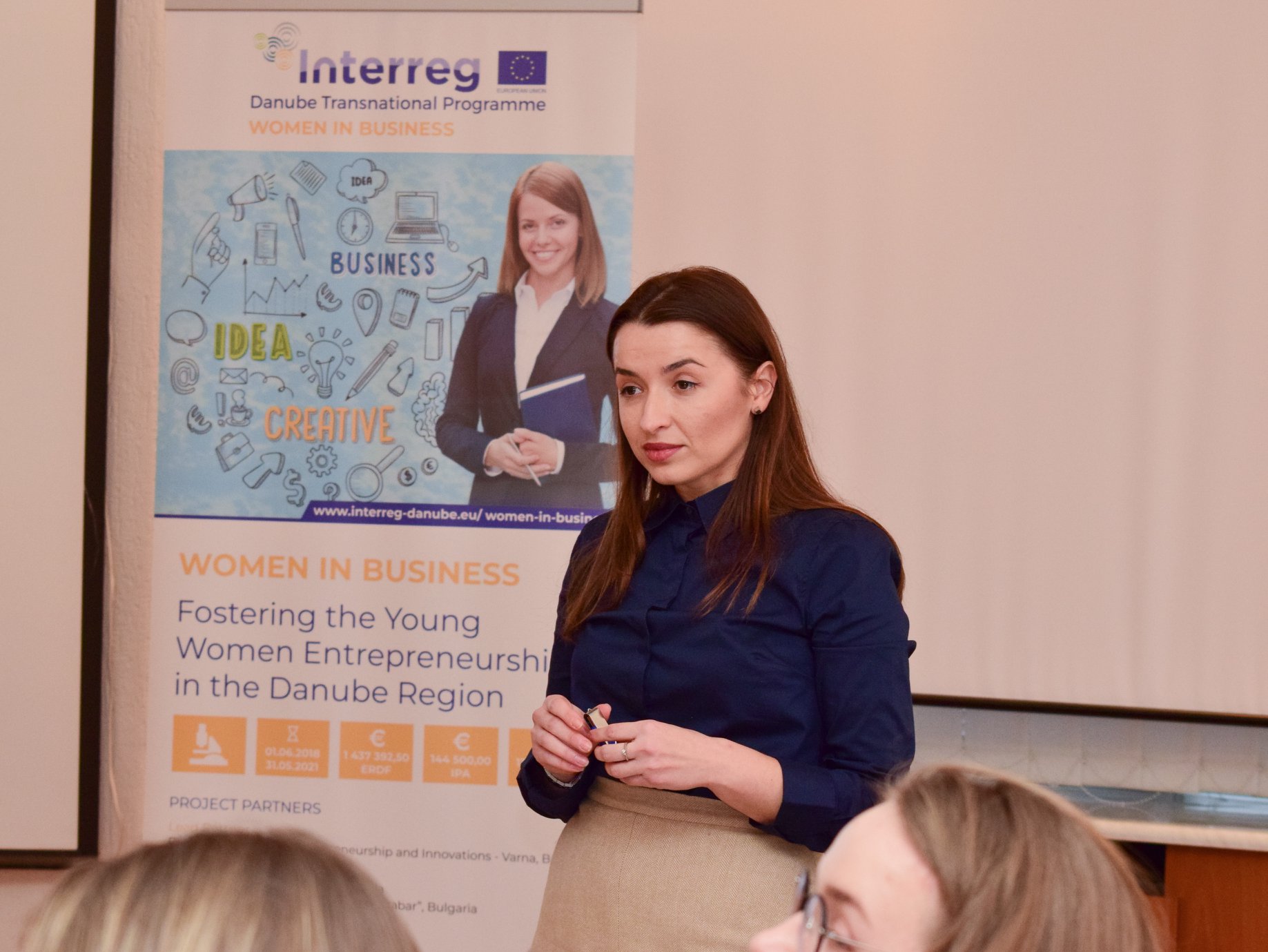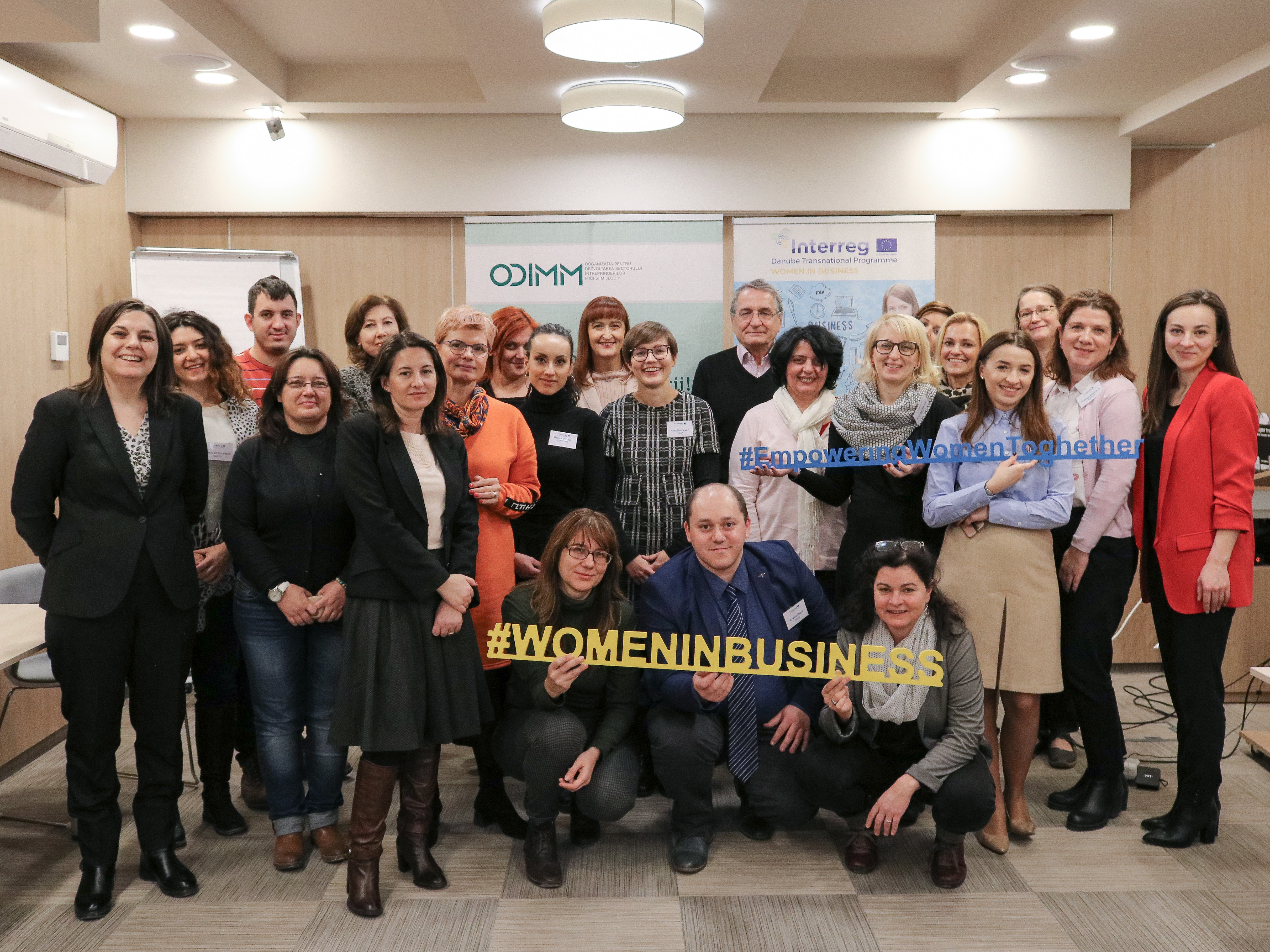Insights from Silvia Cangea-Digolean on Empowering Young Women Entrepreneurs in the Danube Region
10-10-2023
Newly established 4 pilot Women Entrepreneurship Centres can play a crucial role in providing tailored support addressing specific needs or challenges that young women in the Danube region face when it comes to starting and growing their businesses. Silvia Cangea-Digolean, a project manager in Women in Business project supported by the Danube Transnational Prorgamme in 2014-2020 period explains how encouraging young women to become entrepreneurs and providing them with the necessary resources and support can have a positive impact not only on their individual success but also on the economy as a whole.
March 16, 2023

1. How have the project results been used?
The project was implemented by the Organization for Small and Medium Enterprise Sector Development from the Republic of Moldova, which is currently called Organization for Entrepreneurship Development (ODA). Standing at the basis for the elaboration of the national programme and the main strategic national policy-making tool in the field, the project has been a major support for women to become entrepreneurs, start their own business, receive sufficient earnings for ensuring a decent living and fulfil their ideas and dreams. All documents and studies developed within the project were based on the needs assessment of challenges and problems, faced by young women entrepreneurs. The skills developed as a result of trainings provided to young women have been crucial for fostering their stance and involvement in entrepreneurship. Thus, young women currently benefit from all the services provided by the Women Entrepreneurship Centres in the Danube region. All in all, good practices developed represent a genuine pool of expertise, knowledge and skills in planning future plans and activities of project wider stakeholders and direct beneficiary target groups.
Standing at the basis for the elaboration of the national programme and the main strategic national policy-making tool in the field, the project has been a major support for women to become entrepreneurs, start their own business, receive sufficient earnings for ensuring a decent living and fulfil their ideas and dreams.
2. Was the project's impact on policy making as expected?
The impact on policy making was as expected, being mainly reflected in the establishment of systemic, evidence based and participatory process in creation of young women entrepreneurship national policy, raising awareness and readiness of public authorities to adjust educational curricula for promotion and development of the entrepreneurship among young women.
3. Have the project results influenced policy decisions or led to any changes in the field?
Project results have led to the following systemic changes: improved business environment fostering female entrepreneurship; development and application of one-stop-shop concept - centralized platform related to female start-ups; elaboration of policy instruments and tools supporting young women businesses: mentorship programs and trainings for business, digital and soft skills; development of policies and practical tools balancing women business involvement with family life in form of child care, elderly care, family life and recreation; joint support reflected in setting-up the e-Commerce platform, assisting young women entrepreneurs in conducting e-Business.
4. Was there any resistance or challenges in incorporating the project results into their work?
There are less women than who are running businesses and start-ups at the micro and small level. However, these firms in many cases appear to be more stable and less likely to fail. At the same time, despite overall growth in the number of women-led firms, their share in the economy is declining at a steady pace due to such challenges as: insufficient access to finance, lack of necessary savings, corruption and red tape, poor business climate, lack of information on how to start a business, lack of entrepreneurial skills, inability to meet the challenge of ensuring appropriate balance between work and family life.
5. How can future projects better support use of the results to drive positive change?
ODA is a public institution supporting overall development of entrepreneurship in the Republic of Moldova, from starting a business to its internationalization. Besides overall financial support to entrepreneurs, ODA is providing advice and guidance to disadvantaged groups, such as youth, women or returned migrants in setting up and developing businesses, and the project has achieved a lot in this sense. However, in order to build on current results, future projects may include additional development measures, aiming to remove various types of barriers, offering more information and stronger support to women at all levels. These interventions could transform women entrepreneurship in genuine key driver of innovation, job creation, and economic growth both at national and regional level. The entrepreneurial potential of young women in the Danube region is still underdeveloped, and, indeed, we need more projects to achieve the main goal - promoting and fostering women entrepreneurial skills. Undoubtedly, the business climate has substantially improved over the last 5-7 years. However, current challenges require adjustments and design of new complex initiatives and tools, designed specifically for women.

